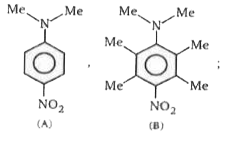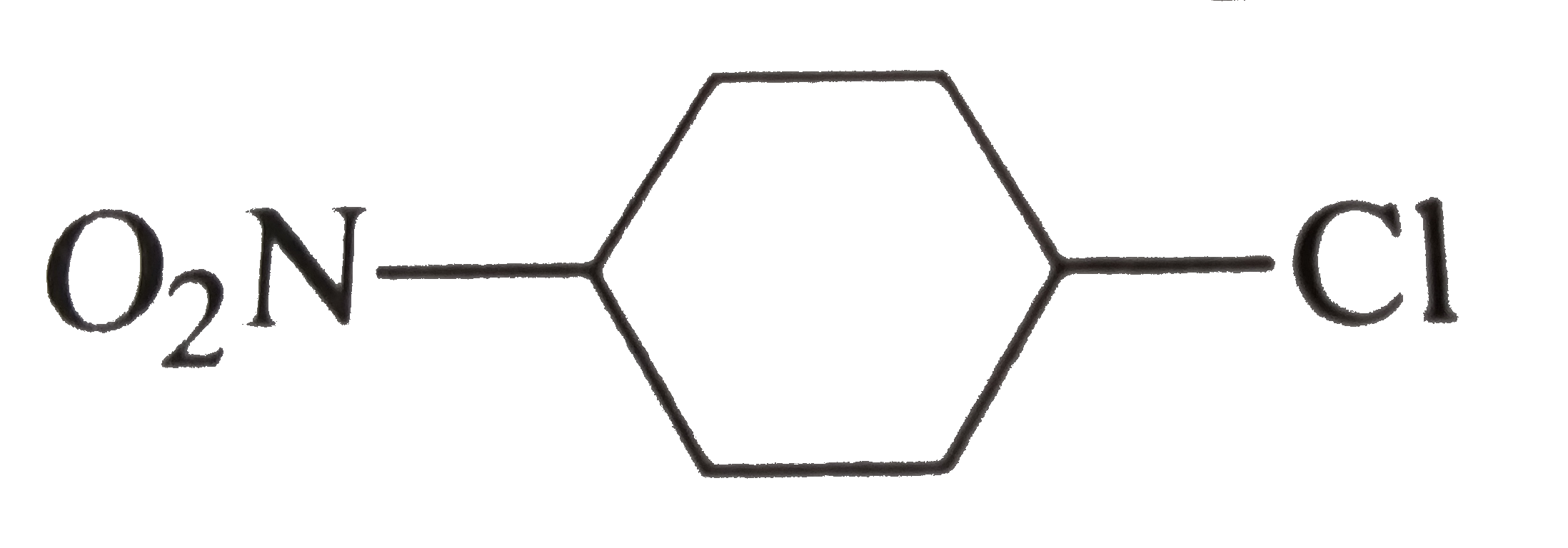Compare the dipole moments of the compounds in the following pairs.
CHCl3,CCl4
To compare the dipole moments of CHCl3 (chloroform) and CCl4 (carbon tetrachloride), we need to analyze the molecular structures and the electronegativity of the atoms involved.
1. Identify the Molecular Structures:
- CHCl3: This molecule consists of one carbon atom (C), one hydrogen atom (H), and three chlorine atoms (Cl). The structure can be visualized as a central carbon atom bonded to three chlorine atoms and one hydrogen atom.
- CCl4: This molecule consists of one carbon atom (C) bonded to four chlorine atoms (Cl). The structure is symmetrical, with chlorine atoms arranged around the carbon atom.
2. Determine Electronegativity Values:
- The electronegativity values (Pauling scale) are approximately:
- Carbon (C): 2.5
- Hydrogen (H): 2.1
- Chlorine (Cl): 3.0
3. Analyze the Dipole Moments:
- CHCl3:
- The C-H bond has a small dipole moment due to the difference in electronegativity between carbon and hydrogen.
- Each C-Cl bond has a significant dipole moment because chlorine is more electronegative than carbon.
- The dipoles from the three C-Cl bonds do not cancel out because the molecule is not symmetrical. Therefore, CHCl3 has a net dipole moment, making it a polar molecule.
- CCl4:
- All C-Cl bonds have the same dipole moment due to the symmetry of the molecule.
- The dipoles from the four C-Cl bonds cancel each other out because of the symmetrical tetrahedral shape of the molecule.
- As a result, CCl4 has a net dipole moment of zero, making it a non-polar molecule.
4. Conclusion:
- Since CHCl3 has a net dipole moment and is polar, while CCl4 has a net dipole moment of zero and is non-polar, we can conclude that the dipole moment of CHCl3 is greater than that of CCl4.
Final Answer:
The dipole moment of CHCl3 is greater than that of CCl4.
- CHCl3: This molecule consists of one carbon atom (C), one hydrogen atom (H), and three chlorine atoms (Cl). The structure can be visualized as a central carbon atom bonded to three chlorine atoms and one hydrogen atom.
- CCl4: This molecule consists of one carbon atom (C) bonded to four chlorine atoms (Cl). The structure is symmetrical, with chlorine atoms arranged around the carbon atom.
- The electronegativity values (Pauling scale) are approximately:
- Carbon (C): 2.5
- Hydrogen (H): 2.1
- Chlorine (Cl): 3.0
- CHCl3:
- The C-H bond has a small dipole moment due to the difference in electronegativity between carbon and hydrogen.
- Each C-Cl bond has a significant dipole moment because chlorine is more electronegative than carbon.
- The dipoles from the three C-Cl bonds do not cancel out because the molecule is not symmetrical. Therefore, CHCl3 has a net dipole moment, making it a polar molecule.
- All C-Cl bonds have the same dipole moment due to the symmetry of the molecule.
- The dipoles from the four C-Cl bonds cancel each other out because of the symmetrical tetrahedral shape of the molecule.
- As a result, CCl4 has a net dipole moment of zero, making it a non-polar molecule.
- Since CHCl3 has a net dipole moment and is polar, while CCl4 has a net dipole moment of zero and is non-polar, we can conclude that the dipole moment of CHCl3 is greater than that of CCl4.
The dipole moment of CHCl3 is greater than that of CCl4.
Topper's Solved these Questions
- BOOK - ICSECHAPTER - CHEMICAL BONDING AND MOLECULAR STRUCTUREEXERCISE - VERY SHORT ANSWER TYPE QUESTIONS50videos
CHEMICAL BONDING AND MOLECULAR STRUCTURE
- BOOK - ICSECHAPTER - CHEMICAL BONDING AND MOLECULAR STRUCTUREEXERCISE - SHORT ANSWER TYPE QUESTIONS76videos
CHEMICAL BONDING AND MOLECULAR STRUCTURE
- BOOK - ICSECHAPTER - CHEMICAL BONDING AND MOLECULAR STRUCTUREEXERCISE - NCERT TEXT-BOOK EXERCISES ( WITH HINTS AND SOLUTIONS)47videos
CHEMICAL BONDING AND MOLECULAR STRUCTURE
- BOOK - ICSECHAPTER - CHEMICAL THERMODYNAMICS EXERCISE - NCERT TEXT-BOOK. EXERCISES22videos
CHEMICAL THERMODYNAMICS
Similar Questions
Knowledge Check
- Question 1 - Select One
The dipole moments of halo compounds are in the order
ACHCl3>CCl4>CHCl2>cis−CHCI=CHCIBcis>CHCl=CHCl>CHCl3>CH2Cl>CCl4Ccis−CHCI=CHCI>CH2Cl2>CHCl3> CClDCHCl3>CHCl2> cis−CHCl=CHCl>CCl4 - Question 2 - Select One
 Dipole moments of given compound will be : A(A) = 6.87D, (B) = 4.11DB(A) = 4.11 D, (B) = 6.87 DC(A) = 4.11 D, (B) = 4.11 DD(A) = 6.87 D, (B) = 6.87 D
Dipole moments of given compound will be : A(A) = 6.87D, (B) = 4.11DB(A) = 4.11 D, (B) = 6.87 DC(A) = 4.11 D, (B) = 4.11 DD(A) = 6.87 D, (B) = 6.87 D - Question 3 - Select One or More
Dipole moment of which compound is not zero?
A B
B C
C D
D
Compare the dipole moments of the compounds in the following pairs.
CO2,SO2View SolutionThe dipole moment is zero for the compound
View SolutionCalculate the dipole moment of the following compound
 .View Solution
.View SolutionDipole moment of which compound is not zero ?
View SolutionDipole moment of which compound will be zero ?
View Solution
